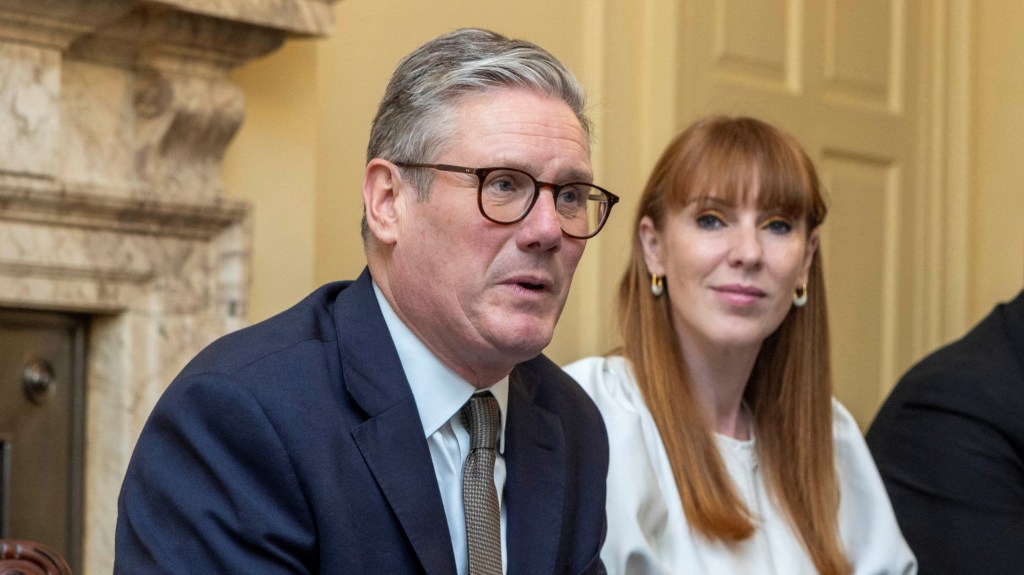Water Firms Plan to Contest Ofwat’s Funding Decision
Four water companies are poised to challenge the funding settlement issued by regulator Ofwat, deeming it unjust amid significant concessions made to the 16 water monopolies operating in England and Wales.
It is anticipated that the two financially troubled giants, Thames Water and Southern Water, will elevate their concerns to the Competition and Markets Authority (CMA) by the February 18 deadline that follows Thursday’s price settlement announcement.
South East Water, another company facing financial difficulties, might also pursue the same course. Wessex Water, which recently faced a setback from Ofwat regarding its requests, could potentially join this challenge.
This latest five-year water bill determination has been described as the most contentious in the 35-year history of privatization, leading analysts to predict that nearly half of the 16 regional water authorities might turn to the CMA for resolution.
However, Ofwat’s considerable concessions—such as a nationwide average increase of 36 percent in household bills before inflation through 2030, enhanced returns for shareholders and creditors, and a revamped penalty regime for poor performance—are thought to potentially avert a mass wave of challenges to the competition authority.
Chris Walters, Ofwat’s director responsible for the price review, expressed uncertainty regarding the number of companies likely to appeal but suggested the disparities between companies’ requests and what they received were mainly significant in only a few cases.
Southern Water has already received two financial bailouts amounting to £1.65 billion from Macquarie during the current regulatory period, facing criticism for its past management of Thames Water, which resulted in the extraction of £1.1 billion in dividends despite poor operational performance.
Southern Water initially sought an 83 percent increase, raising its household bills from £420 to £768 by 2030. Ofwat, however, has allowed an increase to £642, which translates to a 37 percent shortfall based on their initial demand.

Thames Water, aiming for a 53 percent increase, received only a 35 percent approval, highlighting a similar revenue shortfall.
At Wessex Water, which currently has the highest bills in the country at £508 annually, the company requested a rate increase to £658 by 2030, but was granted a lesser increase to £614, leading to a 30 percent revenue shortfall.
South East Water, a water-only supplier whose sewer management is handled by either Southern or Thames, has also been noted by Ofwat for financial distress. The company requested a 43 percent rise in supply charges but was approved for only 24 percent, resulting in a 45 percent gap in anticipated funding increases.
Walters noted that companies with smaller deficits might dissuade themselves from appealing Ofwat’s decision due to three main considerations: they have secured permission for substantial price increases, pursuing further adjustments may be viewed negatively by the public, and the CMA’s re-assessment could yield less favorable outcomes.

“It’s challenging to predict individual company outcomes as numerous factors will influence their decisions,” Walters said.
Ofwat has shifted towards a more favorable stance regarding total industry expenditure. The water companies had requested a historic funding figure of £108 billion through 2030; however, Ofwat’s interim draft intake in July had set the figure at £88 billion, resulting in frustration among companies.
Ofwat’s finalized financial determination now stands at £104 billion, with nearly half of this increase attributed to new regulatory requirements from the Environment Agency and the Drinking Water Inspectorate, reflecting unanticipated operational costs, including elevated energy bills and business rates. Additionally, several companies had their business cases revised due to insufficient initial documentation.
Another contentious point raised between Ofwat and the companies was the allowable rates of return for shareholder investments and creditor loans.

The cost of equity has now risen from a draft estimation of 4.8 percent to 5.1 percent, and the cost of debt has increased from 2.84 percent to 3.15 percent, producing a combined weighted cost of capital of 4.03 percent up from 3.72 percent.
“This is a fair market return that ensures continued investment and meets investor expectations,” Walters commented.
City analysts from JP Morgan noted that the approved return rate exceeded their expectations, further affirming a positive outlook on the industry, encapsulated in their report sentiment: “Come on in, the water’s fine.”
Ofwat has also responded to another significant dispute with the industry surrounding penalty systems for underperforming companies by suggesting penalties will now be assessed based on the average performance metrics of all companies, a move analysts argue helps to optimize the penalties framework.
Among publicly traded companies, Severn Trent, led by the highest-paid water CEO in the UK, responded positively with an investor meeting to discuss their £14.9 billion spending strategies, fueled by a 47 percent increase in bills, resulting in a 24p, or 0.9 percent, rise in share value to £25.74.
Shares in United Utilities rose slightly, closing ½p or 0.05 percent higher at £10.64, while shares for South West Water’s parent company Pennon Group increased by 2p, or 0.3 percent, ending at 587½p.




Post Comment